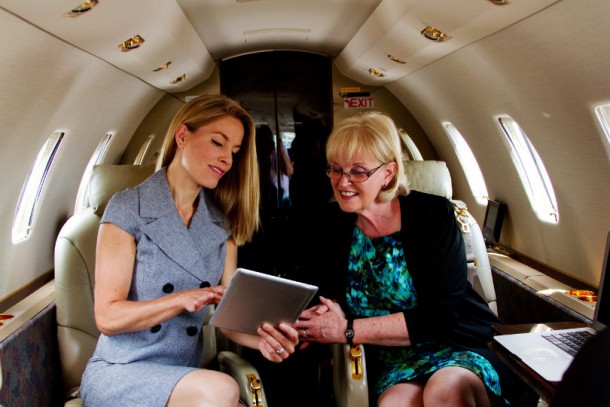The Evolution and Influence of Private Jets In Modern Aviation
The world of aviation has undergone a exceptional transformation over the past few many years, and one of the most important developments has been the rise of private jets. Once thought of a luxury reserved for the elite, private jets have advanced into a versatile mode of transportation that caters to a wide range of needs, from business travel to personal leisure. This text explores the evolution of private jets, their impact on the aviation business, and the way forward for private air travel.

The Historic Context of Private Jets
The concept of private air travel might be traced again to the early 20th century when aviation pioneers began to discover the possibilities of private aircraft. However, it wasn’t till the put up-World Battle II period that private jets began to emerge as a viable choice for affluent people and businesses. The introduction of the de Havilland Comet within the 1950s marked a big milestone in the development of economic jet travel, paving the way in which for the creation of smaller, extra luxurious private jets.
The 1960s and 1970s noticed the launch of iconic models such because the Learjet 23, which was the first business jet to acquire widespread reputation. The Learjet revolutionized the idea of private air travel, providing pace, consolation, and the power to reach airports that business airlines could not. This period set the stage for an explosion of private jet manufacturers and fashions, catering to a rising market of wealthy individuals and firms.
The Enterprise Mannequin of Private Jets
Private jets function below various business models, together with possession, fractional ownership, and charter companies. Full possession involves buying a jet outright, which could be a big monetary dedication. Fractional possession allows a number of homeowners to share the costs and utilization of a jet, making it a more accessible choice for many who do not require full-time entry. Charter providers, then again, provide on-demand access to private jets with out the necessity for possession, appealing to those that fly infrequently.
The pliability and comfort provided by private jets have made them a beautiful option for business travelers. Firms can save worthwhile time by bypassing industrial airline schedules, avoiding long safety lines, and flying on to their destination. This efficiency often translates into increased productivity, making private jets a worthwhile investment for many businesses.
The Technological Developments
The evolution of technology has performed a crucial position in the development of private jets. Trendy jets are geared up with advanced avionics, enhanced safety options, and luxurious amenities that cater to the needs of discerning travelers. If you have any thoughts regarding wherever and how to use Private Jet Charter Services, you can speak to us at our own internet site. Innovations akin to fly-by-wire techniques, satellite tv for pc communications, and noise reduction technologies have considerably improved the flying expertise.
Moreover, the introduction of extra gas-environment friendly engines and lightweight supplies has allowed manufacturers to create jets that aren’t only faster but also more environmentally friendly. As sustainability becomes a urgent concern in the aviation business, many private jet manufacturers are investing in research and development to create greener alternate options, such as electric and hybrid aircraft.
The Impression on the Aviation Business
The rise of private jets has had a profound impact on the aviation business as a whole. Whereas business airlines continue to dominate air journey, the private jet sector has carved out a major area of interest. The demand for private air travel has led to the growth of specialised service providers, including maintenance, restore, and overhaul (MRO) firms, in addition to FBO (fastened-base operator) companies that cater to private jet passengers.
Furthermore, the COVID-19 pandemic accelerated the shift in direction of private aviation, as travelers sought safer and extra managed journey environments. The private jet trade experienced a surge in demand throughout this interval, with many first-time users discovering the benefits of private journey. This pattern has led to increased investment in private aviation infrastructure, including the enlargement of private terminals and hangars at airports.
The Social Implications of Private Jets
While private jets offer numerous advantages, in addition they elevate important social and ethical issues. The perception of private jets as symbols of wealth and privilege can create a divide between those who can afford such luxury and people who can not. Critics argue that the environmental impact of private jets, notably by way of carbon emissions, is disproportionate to the advantages they supply.
In response to those considerations, the private aviation trade has begun to advocate for more sustainable practices. Initiatives equivalent to carbon offset programs, using sustainable aviation fuels (SAF), and the event of extra efficient aircraft are steps being taken to mitigate the environmental affect of private jets. Additionally, some corporations are exploring progressive options, resembling shared flights and on-demand companies, to make private air travel extra accessible and sustainable.
The way forward for Private Air Travel
Wanting ahead, the future of private jets appears promising. As know-how continues to advance, we will count on to see much more environment friendly and environmentally pleasant aircraft getting into the market. The integration of synthetic intelligence and automation in aviation is probably going to boost security and streamline operations, making private air travel more environment friendly.

Moreover, the rise of urban air mobility (UAM) and electric vertical takeoff and landing (eVTOL) aircraft presents thrilling possibilities for the future of private aviation. These innovations could revolutionize urban transportation, permitting for quick and handy journey inside cities and reducing the reliance on traditional floor transportation.
In conclusion, private jets have come a long way since their inception, evolving into a vital component of the aviation trade. With their capacity to supply unparalleled comfort, flexibility, and luxury, private jets cater to a diverse range of travelers. As the trade continues to adapt to altering social, environmental, and technological landscapes, the future of private air travel holds great potential for each people and businesses alike. The problem will be to stability the benefits of private aviation with the urgent want for sustainability and social accountability.

